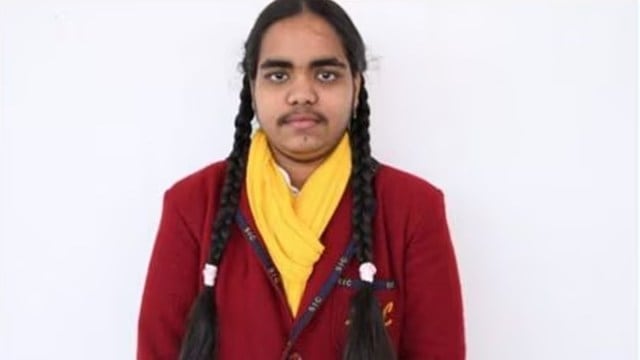
Over a decade ago, I read Franz Kafka’s novella, The Metamorphosis. Much like every other pretentious 20-something-year-old, I discussed the interpretations of the story with friends. Alienation, suffering, misery, sickness, the loneliness of the sick, mental trauma, existential crisis, and societal oppression — all themes were explored. Michel Foucault’s Madness and Civilisation became part of the discourse, what with Samsa being kept inside a room, separated from the rest by a wall and a door. It wasn’t something I could articulate much, then, but over the years, words came to me. Gregor Samsa also had a beauty problem. He hadn’t turned into a butterfly or a honeybee, not even a moth. He was the filthiest insect, the one we all hate — the cockroach. And so (spoilers ahead) he had to die of starvation, alienation, and neglect.
Among all his other lacks, Samsa also did not have “pretty privilege”.
A few days ago, when 15-year-old Prachi Nigam topped the 10th standard UP Board exams with 98.50 per cent, her photo went viral. People, mostly men, but women too, mocked her appearance. Some offered her unsolicited advice on grooming. But since the child is not on social media, it was a closed chamber conversation. Some expressed “concern” about her ill health. Nigam has facial hair. So they discussed everything from bad hygiene to PCOS. News channels went to her house, and she, with a lot of disappointment, said she wished she wasn’t the topper. These comments would not hound her if she had scored a few marks less.
During a class discussion on Toni Morrison’s The Bluest Eye, my professor pointed out that people feel more comfortable when surrounded by beautiful people. I, the Pecola Breedlove of my story, expressed a counter-opinion. I told my professor I hated beautiful people. They made me feel unsafe, completely missing out on the irony that I wanted to be beautiful. Or as Morrison put it, “All the time we knew that Maureen Peal was not the Enemy and not worthy of such intense hatred. The Thing to fear was the Thing that made her beautiful, and not us.”
This fear and hate may have stemmed from being bullied by the “beautiful” girls in school, but that did not negate the fact that I, much like the rest of us, was raised to look up to those beautiful. The thing to fear, then, was the system, the institution that made beauty such a reverential commodity, we cannot imagine a life, especially the life of a woman, without it.
By focusing on her looks, a child, Prachi Nigam, was objectified on social media and was told that her worth was tied to her looks. Become Maureen, not Pecola. Fit the mould or no one cares.
On the other side of beauty, the same week, 61-year-old Alejandra Marisa Rodriguez made “history” by becoming Miss Universe Buenos Aires. Feminists have often criticised beauty pageants, and the pageants on their part have tried to respond to the criticism by implementing changes. So, in response to accusations of racism, Jennifer Hosten became the first Black woman to win Miss World in 1970. Then the organisers expanded the brackets to include other nationalities. When it began, the sheer focus of the pageants was “beauty” and in that, the swimsuit round was the most popular one. It was met with criticism repeatedly, and so got rounds that judged these women on their intellect. And it has often led to hilarious consequences.
Every few years, “history” gets made when women from conservative nations participate and wear swimsuits. If they show their bodies, it’s emancipation. If they refuse to, it is choice and emancipation. In the newest of gimmicks in women’s empowerment, the Miss Universe pageant has declared that all women above the age of 18 are welcome to participate. So long as you are thin and conventionally beautiful, we will take you in.
As fluid as the word in our imagination might be, pretty people run the world. From Karan Johar telling us you will get the guy if you turn pretty in Kuch Kuch Hota Hai to fairness creams telling us we will get the job if we turn pretty or fair, these unsavoury things happen. For instance, the beauty market is worth $646.20 billion in 2024. There are ample studies suggesting that attractive people may have a higher earning potential. This “beauty premium” can be seen in various professions. Additionally, people perceived as attractive are treated more favourably in job interviews, negotiations, or customer interactions.
This, in the end, isn’t about the pageants or Prachi Nigam. It isn’t about inner beauty vs outer beauty. It’s only about how we can’t seem to stop talking about beauty. And even though the discourse on social media tells us we are all beautiful, I wonder if life would be easier if no one was looking at the label of beautiful at all. Would it be easier if I just decided to not want to look beautiful?
Indurkar is a writer, editor, and poet from Jabalpur. She is the author of It’s All in Your Head, M


